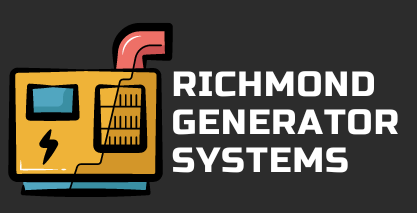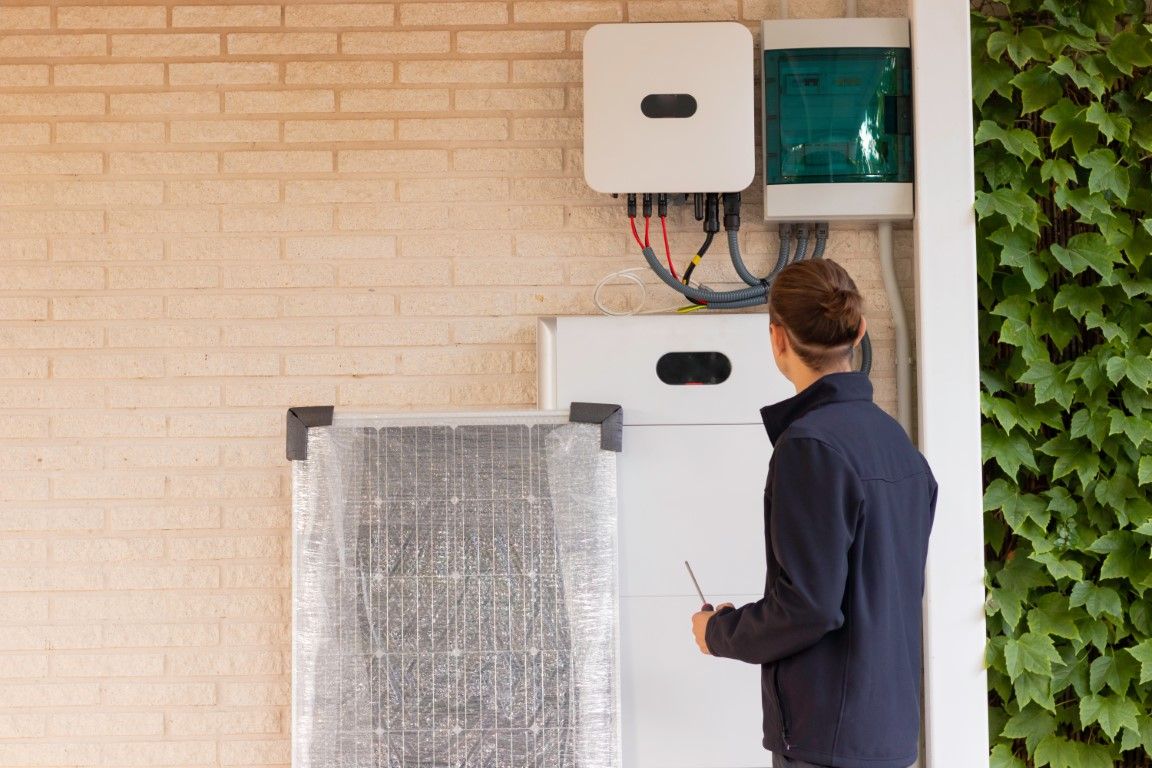
Solar Generators in Richmond VA
A solar generator is a portable device that uses solar energy to generate electricity. It typically consists of a solar panel, a battery, and an inverter. The solar panel captures sunlight and converts it into electrical energy. This energy is then stored in the battery for later use. The inverter changes the stored energy into a form that can be used to power various devices.
How Do They Work?
Solar generators operate by harnessing sunlight through the solar panel. When sunlight hits the panel, it produces direct current (DC) electricity. This DC electricity is stored in the battery. When you need to use the energy, the inverter converts the DC power into alternating current (AC) power, which is the standard form of electricity used in homes and businesses.
Different Types and Key Features to Consider
Solar generators come in various types, each suited to different needs. Some are designed for lightweight, portable use, making them ideal for camping or outdoor activities. Others are more robust and capable of powering larger appliances or providing backup power for homes. When selecting a solar generator, consider factors such as power capacity, battery life, solar panel efficiency, and the number of outlets. Additionally, features like portability, ease of use, and durability can impact your decision.

We will get back to you as soon as possible.
Please try again later.
Installation Process
The installation of a solar generator is generally straightforward. For portable models, you simply place the solar panel in a sunny location and connect it to the generator. Fixed installations might require mounting the panels on a roof or other structures, along with setting up the generator in a suitable location. It’s important to follow the manufacturer's instructions to ensure proper setup and optimal performance.
Regular Maintenance Tips
Maintaining a solar generator involves a few key tasks. Regularly clean the solar panels to remove dust and debris that could reduce their efficiency. Check the battery periodically to ensure it is functioning properly and free of damage. Inspect the cables and connections for wear and tear, and replace any components as needed. Proper maintenance can extend the lifespan of your solar generator and ensure it operates efficiently.
Cost and Investment
The cost of a solar generator in Richmond, VA varies depending on its size, capacity, and features. Portable models are typically more affordable, while larger systems with higher capacities can be more expensive. Investing in a solar generator can be a cost-effective solution in the long run, as it reduces reliance on traditional energy sources and can provide savings on electricity bills. Additionally, some tax incentives and rebates may be available to offset the initial investment.
Applications of Solar Generators
Solar generators are versatile and can be used in a variety of applications. They are popular for outdoor activities such as camping and hiking, where access to traditional power sources is limited. They can also serve as backup power for homes during outages or be used to power essential appliances in remote areas. Their flexibility makes them a valuable addition to any energy plan.
Importance of Renewable Energy Solutions
Renewable energy solutions, such as solar generators, play a crucial role in reducing our environmental impact. They harness energy from natural sources, which are sustainable and have minimal environmental effects compared to fossil fuels. By adopting renewable energy solutions, we contribute to a cleaner, healthier planet and help reduce greenhouse gas emissions.
How to Choose the Right Solar Generator
Choosing the right solar generator involves assessing your specific needs and preferences. Consider the power requirements of the devices you plan to use, the portability of the generator, and the available space for installation. Evaluate the battery capacity, solar panel efficiency, and additional features that may be important to you. Researching and comparing different models can help you make an informed decision.
If you’re interested in learning more about solar generators or need assistance in selecting the right model for your needs, we’re here to help. Contact us today to discuss your requirements and explore the best solar generator options for your home or business. Our team is dedicated to providing you with reliable and efficient energy solutions.
Solar Generators vs. Traditional Generators: What’s the Difference?
When it comes to generating electricity, there are various options available, each with its own set of benefits and drawbacks. Two common choices are solar generators and traditional generators. Understanding the differences between these two types of generators can help you make an informed decision based on your needs, preferences, and environmental concerns.

Power Source
The primary difference between solar generators and traditional generators lies in their power sources. Solar generators harness energy from the sun through solar panels. These panels convert sunlight into electrical energy, which is then stored in batteries for later use. In contrast, traditional generators typically rely on fossil fuels such as gasoline, diesel, or propane to produce electricity. This fundamental difference impacts their efficiency, environmental impact, and overall functionality.
Environmental Impact
Solar generators are known for their environmentally friendly operation. Since they use renewable solar energy, they produce no emissions or pollutants during operation. This makes them a cleaner alternative to traditional generators, which emit carbon dioxide and other pollutants as they burn fossil fuels. For those concerned about reducing their carbon footprint, solar generators offer a more sustainable solution.
Operational Costs
When it comes to operational costs, solar generators have a clear advantage. Once installed, solar generators have minimal ongoing costs. The sun is a free resource, so you won't have to purchase fuel. Additionally, solar panels are relatively low-maintenance. On the other hand, traditional generators require regular fuel purchases and maintenance. Over time, the cost of fuel can add up, making traditional generators more expensive to operate in the long run.
Portability and Convenience
Solar generators often offer greater portability compared to traditional generators. Many solar generators are designed to be compact and lightweight, making them easy to transport. They are ideal for camping, RVs, or outdoor events. Traditional generators, while available in various sizes, can be bulkier and heavier. They also require access to fuel, which can limit their convenience in remote locations.
Noise Levels
Noise is another factor where solar generators and traditional generators differ significantly. Solar generators operate silently since they don’t have moving parts or engines. This makes them suitable for quiet environments and residential areas where noise is a concern. Traditional generators, however, can be quite loud due to their engines, which can be disruptive, especially in quiet settings or during nighttime use.
Power Output
Traditional generators generally offer a higher power output compared to most solar generators. They are capable of powering larger appliances and equipment, making them suitable for situations where substantial power is required. Solar generators, while adequate for many uses, may have limitations in power capacity depending on their size and the amount of sunlight they receive. It's essential to assess your power needs to determine which type of generator will be most effective for your specific situation.
Installation and Setup
Setting up a solar generator is relatively straightforward. Once you have the panels and batteries, the installation process typically involves connecting the components and placing the panels in a sunny location. Traditional generators require more extensive setup, including fuel connections and engine maintenance. Additionally, traditional generators may need to be installed in well-ventilated areas to manage exhaust emissions safely.
Lifespan and Durability
Solar generators are designed to have a long lifespan with minimal wear and tear since they have fewer moving parts. Solar panels can last 25 years or more, and the batteries in solar generators also have a relatively long life with proper care. Traditional generators, while durable, may experience more wear and tear due to their mechanical components and regular fuel use, which can affect their lifespan.
Deciding between a solar generator and a traditional generator depends on your specific needs, environmental concerns, and budget. If you are interested in learning more about which option might be best for you, feel free to contact us today. Our team can provide detailed information, answer your questions, and help you make the best choice for your power generation needs.
The Impact of Solar Generators on Your Energy Bill
As the world shifts toward more sustainable energy solutions, solar generators are becoming a popular choice for homeowners looking to reduce their reliance on traditional power sources. These devices harness sunlight to produce electricity, offering a cleaner and often more cost-effective alternative to conventional energy sources. Solar generators work by converting sunlight into electrical power, which can then be used to run household appliances or stored for later use. This process directly influences your energy bill in several key ways:
Reduction in Electricity Costs
One of the most immediate benefits of using a solar generator is the potential for significant savings on your monthly energy bill. By generating your own electricity, you reduce the amount of power you need to purchase from your utility provider. This reduction can lead to lower overall energy costs.
Decreased Dependence on the Grid
Solar generators allow you to produce electricity independently of the grid. This means that during peak usage times or power outages, you can rely on your solar generator to supply power, potentially saving money that you would otherwise spend on backup energy sources or grid power.
Long-Term Savings
While the initial investment in a solar generator and installation can be substantial, the long-term savings often outweigh the upfront costs. Over time, the reduction in your electricity bill can lead to a full return on investment, especially if you choose high-quality, efficient solar technology.
Incentives and Rebates
Many regions offer incentives, tax credits, or rebates for installing solar generators. These financial benefits can help offset the initial costs and enhance the overall savings on your energy bill.
Energy Independence
By generating your own electricity, you gain greater control over your energy usage and costs. This independence can shield you from fluctuating energy prices and unexpected rate increases from your utility company.
Environmental Impact
Beyond the financial savings, solar generators also contribute to reducing your carbon footprint. As you use renewable energy from the sun, you decrease your reliance on fossil fuels and lower your overall environmental impact.
If you're interested in exploring how a solar generator could transform your energy costs and contribute to a more sustainable future, we're here to help. Our team of experts can provide you with detailed information, assess your needs, and guide you through the process of selecting and installing a solar generator that's right for you. Contact us today to learn more about how you can start saving on your energy bill and make a positive impact on the environment.
Let's Connect!
Looking for reliable power solutions? Look no further than us! Our expert team is here to help you understand how whole house generators work and why they're essential. Don't get caught in the dark! Check out our buyer's guide and discover the reasons for the loss of power. Contact us today for a consultation!